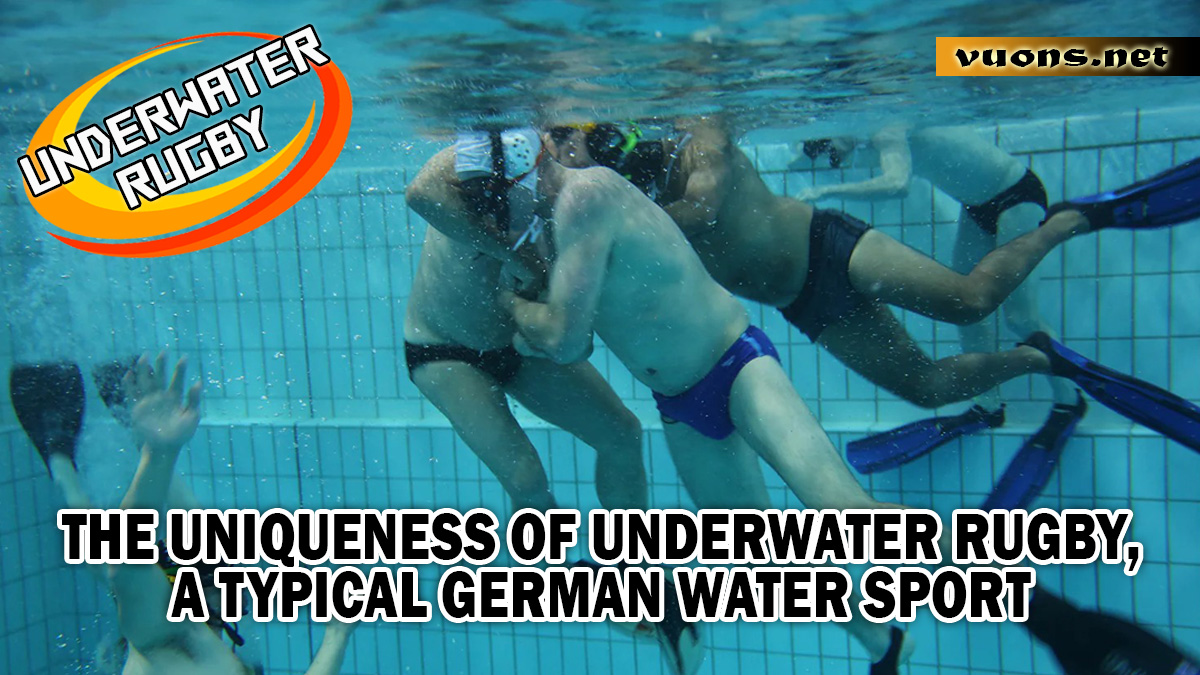Underwater Rugby: A Unique Sport Born in Germany
Underwater Rugby – Underwater Rugby is an underwater sport that combines the skill of diving with the intensity of team play. Invented in Germany in the 1960s, the Sport has quickly grown into an international phenomenon with a cult following around the world. While it may sound unusual, Underwater Rugby offers a thrilling, strategic and adrenaline-pumping experience, as two teams compete to score goals at the bottom of a deep swimming pool. From its origins as a diving exercise to becoming a globally recognized sport, this article will explore the history, rules and journey of Underwater Rugby that began in Germany, and why the country remains a major hub for this unique sport.
The Beginnings of Underwater Rugby in Germany
Underwater Rugby, an underwater sport now known throughout the world, was first invented in Germany in the 1960s. The sport was created by Ludwig von Bersuda, a scuba diving instructor, who wanted to develop a more interesting and beneficial training for divers. Initially, Underwater Rugby was used as a training method to improve divers’ skills in more challenging water conditions.
Von Bersuda and his colleagues modified the traditional ball game by creating a ball filled with salt water to keep it submerged. Goals were also placed at the bottom of swimming pools, and the basic rules of the game began to develop. This concept immediately caught the attention of diving clubs in Germany, and the sport quickly gained popularity.
In 1968, the game was introduced to clubs in Cologne and other major cities. Although initially played only as a recreational activity, Underwater Rugby began to show potential as a competitive sport. In the 1970s, the first more formal matches were held, and the first championship was held in Germany.
Germany remains the main hub for Underwater Rugby development, and the country has achieved many successes at the international level. Today, the sport has spread to many parts of the world, but retains its strong roots and heritage in Germany, its birthplace.
From Diving Practice to International Competition
Underwater Rugby began as a fun diving practice for divers in Germany in the 1960s. Invented by Ludwig von Bersuda, the sport was originally designed to train divers to become more skilled at moving underwater while managing their breathing better. Unlike regular diving, the game incorporated elements of a ball filled with salt water to keep it submerged, as well as goals located at the bottom of a pool, creating a unique physical challenge.
Over time, the sport evolved into more than just a practice. Diving clubs in Germany began to adopt the game and introduce it into local competitions. In the 1970s, the first larger-scale matches were held, and club championships became increasingly popular.
As more clubs got involved, Underwater Rugby began to gain international attention. In 1978, the International Underwater Rugby Federation (CMAS) was founded, and Germany became one of the dominant nations in world competitions. The first international tournaments were held, attracting participants from many countries and cementing Underwater Rugby’s status as a competitive sport.
Today, the sport continues to grow, with regular international tournaments being held. Germany, its home country, remains a major force in Underwater Rugby, both at club and national level, maintaining its long tradition in the sport.
Germany’s Role in Developing Underwater Rugby Worldwide
Germany has played a significant role in the development of Underwater Rugby, from its inception to becoming a recognized sport in various parts of the world. The sport was first invented in Germany in the 1960s by Ludwig von Bersuda as a training method for divers. This unique concept combines a ball filled with salt water and a goal located at the bottom of a swimming pool, providing a different physical and technical challenge than other water sports.
Over time, Underwater Rugby has not only developed as a training exercise, but also into a competitive sport. Diving clubs in Germany began to organize matches, and in 1978, the International Underwater Rugby Federation (CMAS) was formed to organize competitions on a global level. Germany, with their experience and expertise, pioneered the organization of the first world championship.
Germany has also been home to many of the best teams and athletes in Underwater Rugby, with many achievements achieved in international championships. The clubs in the country continue to produce players who compete at the highest level, showing the dedication and great influence of the country in the sport. Germany not only gave birth to the sport, but also continues to nurture and develop it, maintaining its position as a global leader in Underwater Rugby.
The Future of Underwater Rugby in the International Sports Arena
Underwater Rugby, a sport that was born in Germany, is growing rapidly in the international arena. Since its first introduction, this sport has attracted the interest of many countries to join its global community. Although still considered a niche, the potential for Underwater Rugby to grow wider in the international sports arena is very large.
With the existence of federations such as CMAS that regulate competitions and tournaments at the world level, this sport continues to gain attention. Several countries, besides Germany, now have very competitive teams, including other European countries as well as a number of countries in Asia and South America. The regular world championships are further increasing the popularity of this sport, providing opportunities for teams from various countries to compete at a higher level.
In addition, more and more universities and clubs around the world are starting to adopt Underwater Rugby as an interesting and challenging sport. This opens up opportunities for the development of young talents who can enrich the quality of the game at the professional level.
With innovations in equipment and playing techniques, as well as support from the growing international community, the future of Underwater Rugby looks very bright. This sport has the potential to enter the major sporting agenda, such as the Olympics, as interest from spectators and athletes around the world increases.




